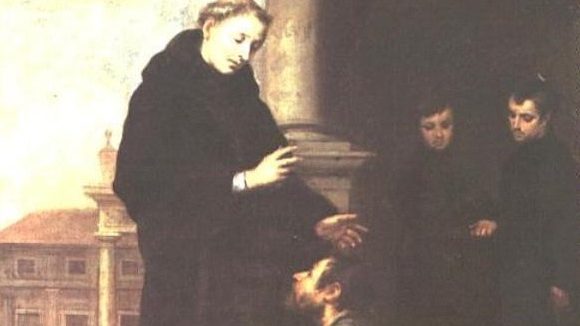St. Thomas of Villanova was born in 1488, in Villanova de los Infantes, a town near Castile, Spain. He was raised in the faith, and his parents Alphonsus and Lucia were dedicated to charitable works, regularly distributing food and provisions to the poor.
Thomas was highly intelligent, and began studying at the University of Alcala when he was 16. In 10 years, he had become a professor of philosophy there, and taught for two years before being offered a more prestigious position at the University of Salamanca.
However, Thomas chose to leave teaching after his father’s death. He left much of his inheritance to the poor, and when he was 28, Thomas entered the monastic Order of St. Augustine to embrace a life of poverty and chastity.
In 1517, he made his first vows, and the next year, was ordained a preacher. In his order, Thomas taught theology, and became known for his effective preaching style in Salamanca’s churches. He was appointed as a court preacher and adviser to the Holy Roman Emperor Charles V.
Thomas initially declined the position of archbishop, choosing to continue his work within his order as they expanded to Mexico. But in 1544, his religious superiors ordered him to accept the appointment as Archbishop of Valencia.
Thomas arrived there wearing his monastic habit, which had seen many years of use, and he would continue to wear this habit for many more years. When he received a donation to decorate his residence, he gave the money to a hospital in need of repairs.
Even as archbishop, Thomas continued to live a monastic life, improving the lives of his faithful spiritually and physically. He was devoted to the poor, sheltering them in his own home, and he promoted education and clergy reform.
Thomas led the Archdiocese of Valencia for 11 years before he succumbed to a heart condition at the end of a Mass held in his home on Sept. 8, 1555. It is said that Thomas died on the floor, rather than in bed, because he had given his bed to a poor man.
Pope Alexander VII canonized St. Thomas in 1658.

